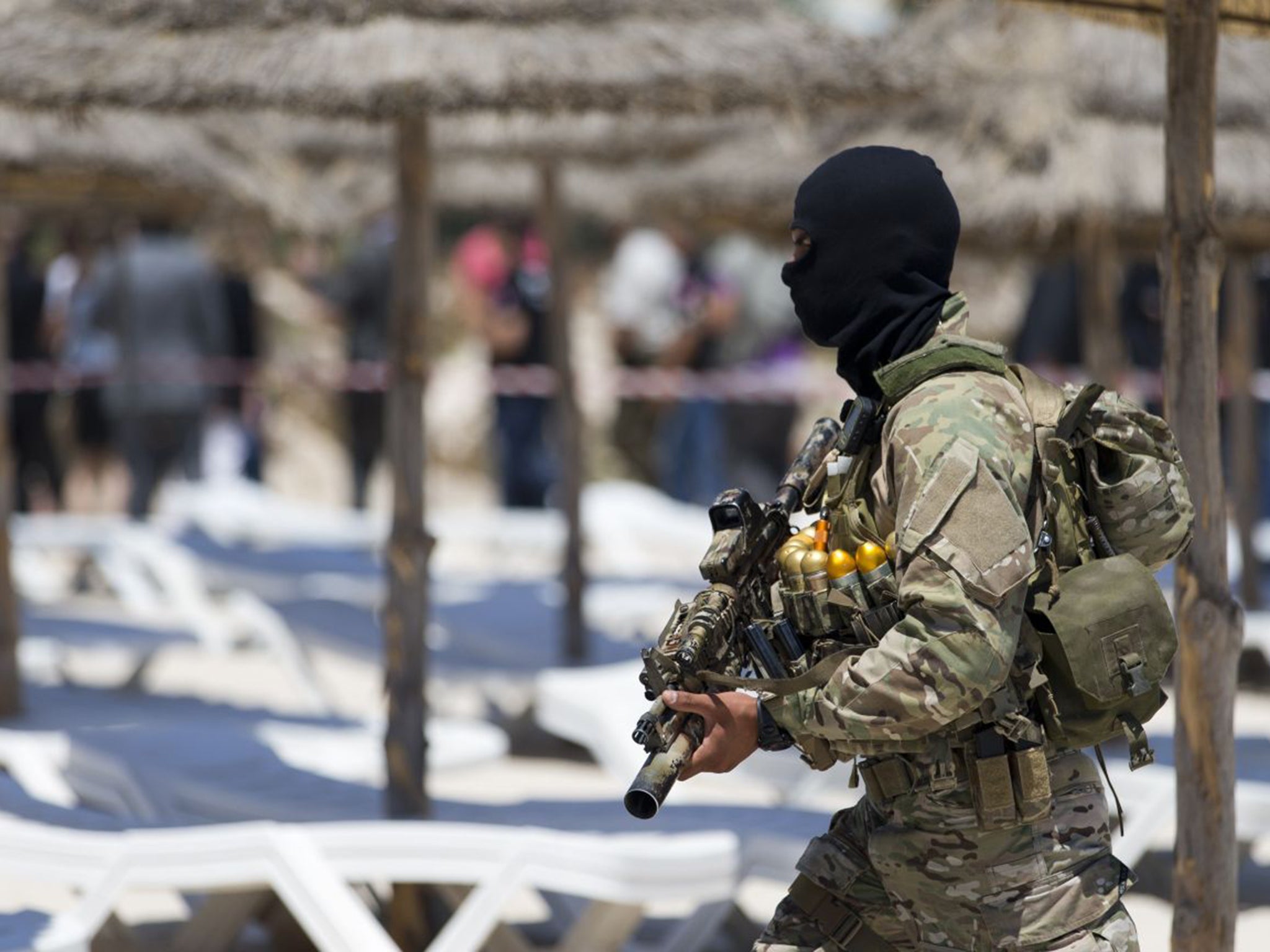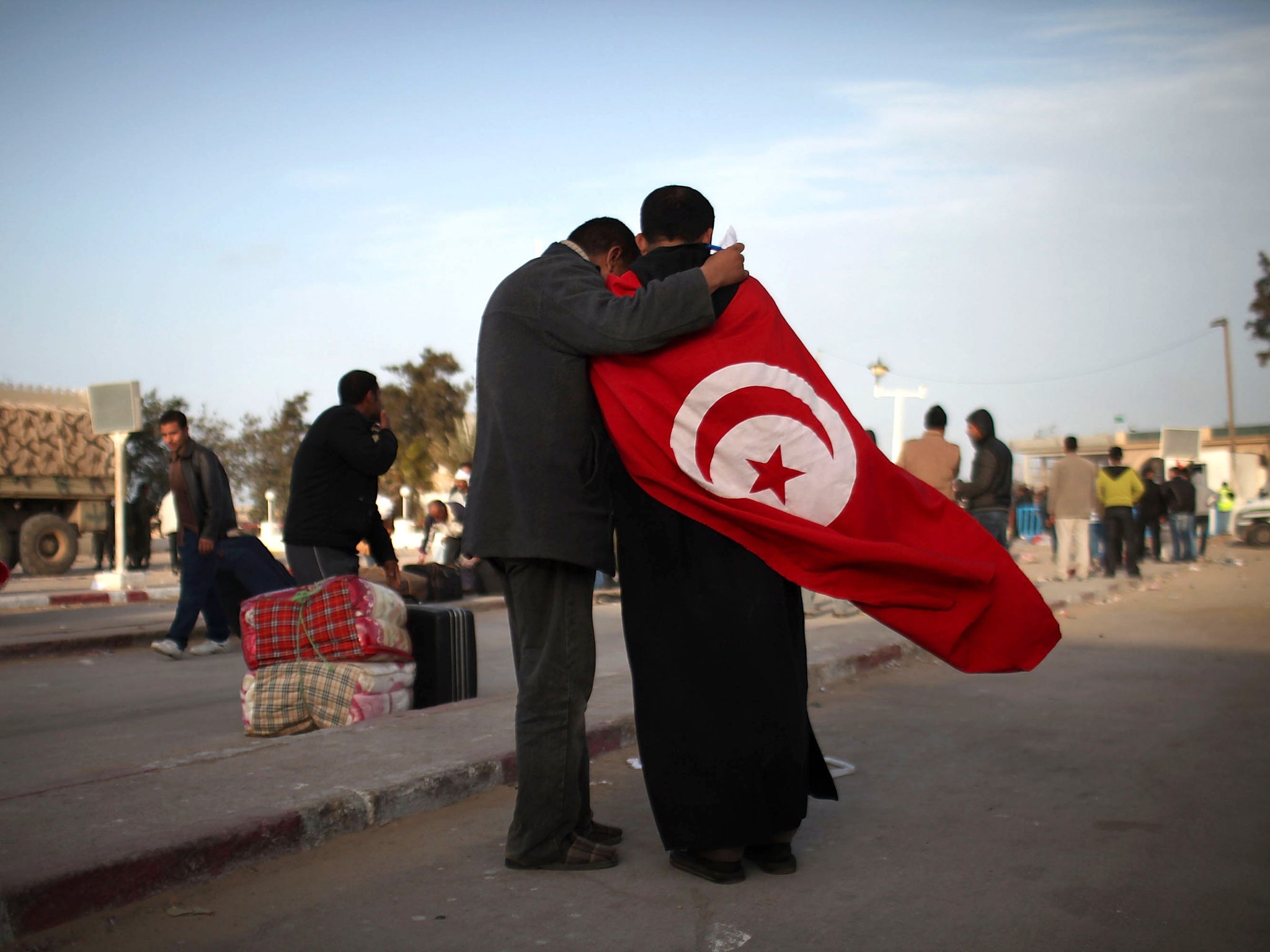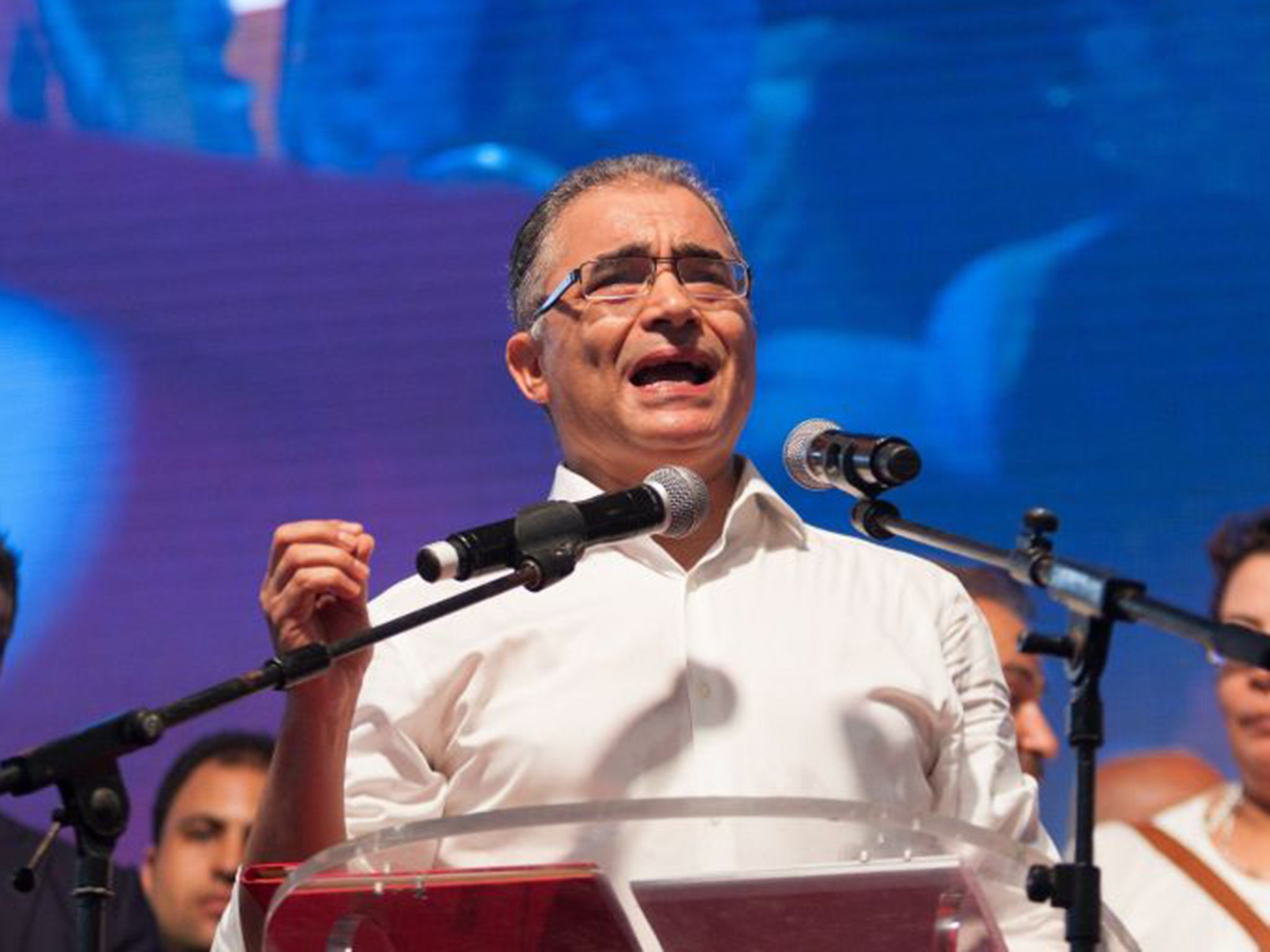Tunisia attack: Senior government figure pleads 'help us fight jihadists' as nation seeks weapons and military hardware to battle Isis
Leader of Tunisia's ruling party has stark warning for the West: we're the last wall between Isis and Europe, so you leave us to fight them alone at your peril

Your support helps us to tell the story
From reproductive rights to climate change to Big Tech, The Independent is on the ground when the story is developing. Whether it's investigating the financials of Elon Musk's pro-Trump PAC or producing our latest documentary, 'The A Word', which shines a light on the American women fighting for reproductive rights, we know how important it is to parse out the facts from the messaging.
At such a critical moment in US history, we need reporters on the ground. Your donation allows us to keep sending journalists to speak to both sides of the story.
The Independent is trusted by Americans across the entire political spectrum. And unlike many other quality news outlets, we choose not to lock Americans out of our reporting and analysis with paywalls. We believe quality journalism should be available to everyone, paid for by those who can afford it.
Your support makes all the difference.Tunisia needs military and financial support from the West to fight the Isis-affiliated jihadists that killed 30 Britons on Sousse beach, one of the country’s leading politicians says. Otherwise “Europe will have to face them directly”.
Kind words are not enough to help Tunisia on its path to political transition, Mohsen Marzouk, head of the Nidaa Tounes Party and an adviser to President Beji Caid Essebsi told The Independent days after the beach massacre.
“Nobody is really helping Tunisia,” Mr Marzouk said. “We don’t just want to be the subject of nice discourse and speeches.” Tunisian authorities have arrested 12 suspects, eight of whom remain in custody, and experts warn further attacks are likely. Two other men are being sought who allegedly attended the same training camp as the Sousse gunman Seifeddine Rezgui and the gunmen responsible for the massacre at the Bardo Museum in March. Both attacks were claimed by Isis.
“Let’s understand that it’s a war, and war cannot wait for support to come,” Mr Marzouk said. “Tunisia is the last wall between terrorists and Europe. If Tunisia is not able to fight [them], Europe will have to face them directly.”

Tunisian security forces need thousands more vehicles, Mr Marzouk added. The country has few military helicopters. In 2014 it bought eight Black Hawk helicopters from the US, but those won’t be delivered until 2017.
Patrolling the 500km shared border with Libya is another big challenge, and Tunisia needs drones and radars to help it stop the flow of weapons smuggled in from Libya.
The attacks on tourists mark a dramatic escalation in what until March had been a simmering campaign after two unprecedented political assassinations in 2013. Previously rare battles between security forces and armed groups, particularly the al-Qaeda-linked Okba Ibn Nafaa Brigade, have become increasingly frequent in recent years.
There are also financial challenges. Even before the revolution, Tunisia’s tourist industry and its exports to Europe had failed to rebound after the global financial crisis in 2008; the drop in phosphate prices also hit the country hard. Nonetheless, the small North African nation has managed to draft a new constitution, and in late 2014 it held its first democratic parliamentary and presidential elections.
Now, with the security and economic situation deteriorating, the problems are mounting. “If we pay for social demands we cannot pay for weapons; if we pay for weapons, we cannot pay for social demands,” Mr Marzouk said.
It’s a stark choice, but one that the authorities are being forced to make because international donors have failed to provide enough money to fund both social reform and security upgrades, Mr Marzouk argued. “We are going through this very difficult process, with fragile new institutions,” he said. “At the same time, all this is happening in the context of a war against terrorism. A real war.”
In addition to the latest blow to the tourism sector, which the government says employs 400,000 people, the phosphate sector has been shut down since April because of mass sit-ins by the unemployed. Strikes have also affected other sectors, including health and education, and many Tunisians are struggling to support their families.
Since the revolution, Tunisia has urged donors to provide more funding, but donors want to see faster economic reforms. Eileen Murray, the World Bank country manager for Tunisia, denied that too much pressure was being placed on Tunisia.
“I would say that the reforms carried out are wanted by Tunisians, are Tunisia-driven, and these reforms have been part of many government programmes to try to open up the economy to private sector,” Ms Murray said. “Obviously now the situation has changed.”
She said donors were taking into account the social upheaval and were working with the authorities to restructure the country’s loans to ensure that aid goes directly to the underdeveloped regions, where it is needed most.
Since the 2011 uprising, which began in the long marginalised centre-west of the country, government after government has failed to create the jobs and infrastructure that protesters have demanded, leading to widespread disenchantment and simmering anger.

“The government is very aware that destabilising social reforms at the cost of social peace may have a destabilising effect,” Ms Murray said. The World Bank has lent around $1bn (£640m) to Tunisia in the past 18 months, and discussions are under way to provide a further $500m in emergency support.
After the Bardo attack, President Essebsi travelled to the US in May to plead for help. Mr Marzouk was a member of the delegation. During the visit, Barack Obama praised Tunisia for taking a “bravely a democratic path”.
The US expects to provide around $100m to support Tunisia in 2015, the US embassy in Tunis told The Independent. And the Obama administration is asking Congress to triple military aid, from $20m to $60m for 2016. Tunisia has also been upgraded to special non-member status within Nato.
Authorities have announced immediate steps to improve security for tourists, including 1,170 police to be permanently assigned to patrol the main tourist beaches. In the main tourist zones of Sousse and Djerba, two police officers will be posted in every hotel.
More than 1,000 arrests have been made since the Bardo attack in March, and many sleeper cells have already been uncovered.
Join our commenting forum
Join thought-provoking conversations, follow other Independent readers and see their replies
Comments